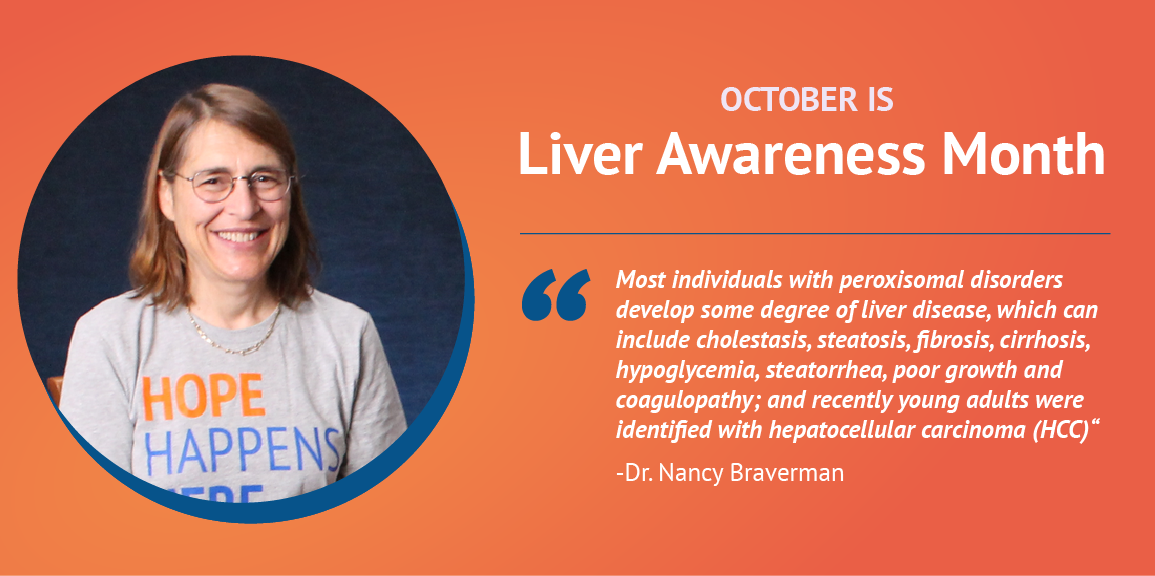October is liver awareness month and we reached out to Dr. Nancy Braverman at McGill University to discuss the important research she is doing for individuals with peroxisomal disorders. Although the disease spectrum is broad, most individuals with peroxisomal disorders develop some degree of liver disease, which can cause significant morbidity and mortality. Complications include cholestasis, steatosis, fibrosis, cirrhosis, hypoglycemia, steatorrhea, poor growth, and coagulopathy; recently young adults were identified with hepatocellular carcinoma (HCC).

According to Dr. Braverman, “Therapy targeted to the liver disease could transform clinical outcomes and improve survival. There are a number of medications currently being investigated for chronic liver diseases that could be repurposed for peroxisomal disorders, and genetic therapies that could be investigated.”
To treat liver disease in peroxisomal biogenesis disorders, Zellweger spectrum (PBD-ZSD), Dr. Braverman’s team has focused on both their mouse model and PBD-ZSD patients. Dr. Nancy Braverman says, “We are currently testing the efficacy of cholic acid supplementation, which inhibits the first step of bile acid synthesis leading to reduced levels of toxic C27-bile acid intermediates.”
How do Dr. Braverman and her team determine efficacy? At McGill University where Dr. Braverman carries out peroxisomal disorder research, she shared, “In the mouse model we can determine efficacy with detailed studies and over a long period. Since the liver disease in ZSD involves more than just the bile acid system, we are investigating the additional mechanisms for liver disease and repurposing drugs for this. Finally, we are interested in targeted genetic therapies.”
Dr. Braverman shared, “The success of any intervention to improve liver disease depends on establishing the clinical progression and variation amongst individuals. Thus, we established a natural history study in which we collect medical information and biobank available samples to study the clinical disease progression.”
Interested in participating in the natural history study, please contact pbd.genetics@mcgill.ca
